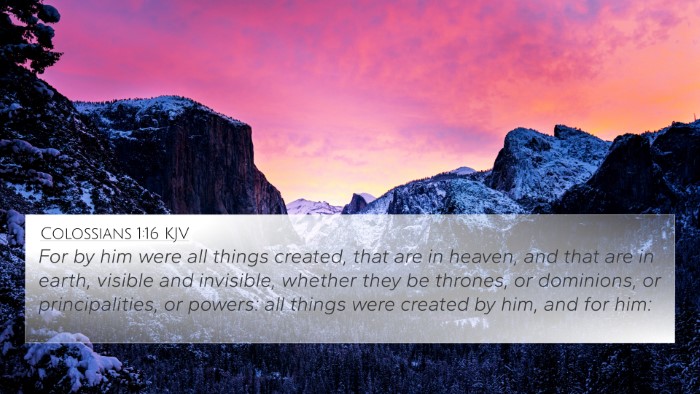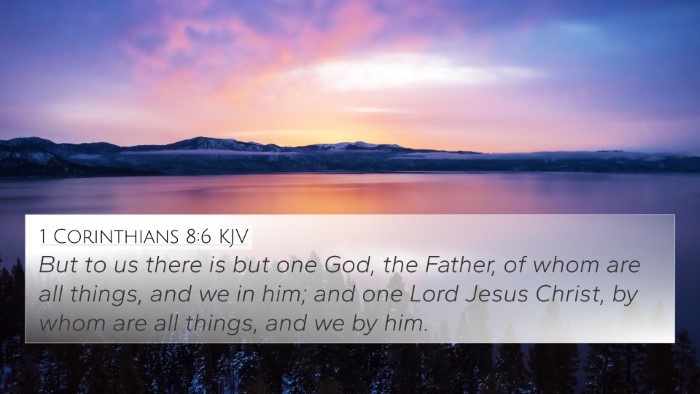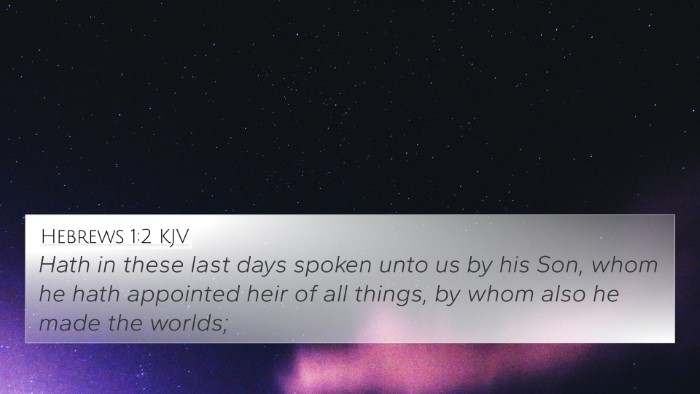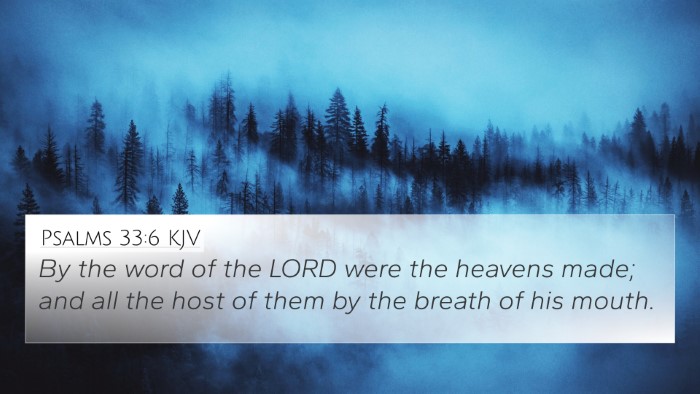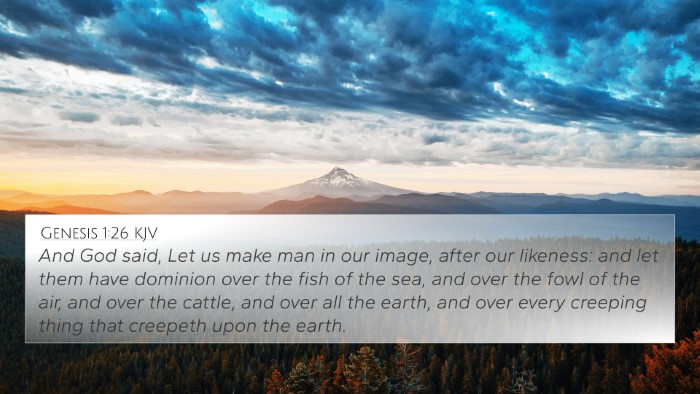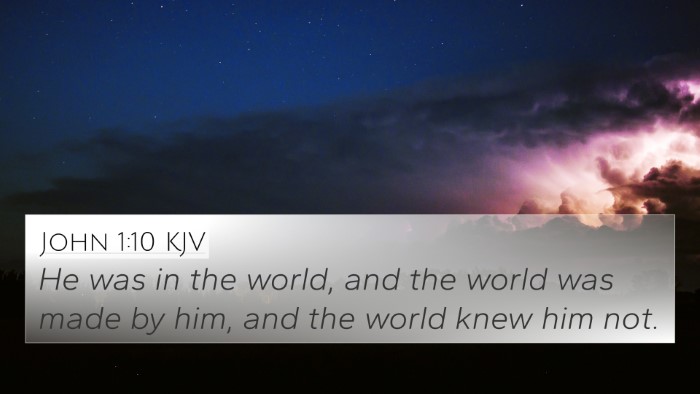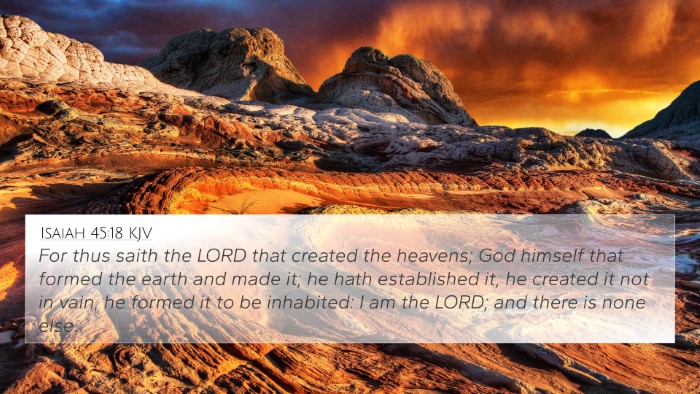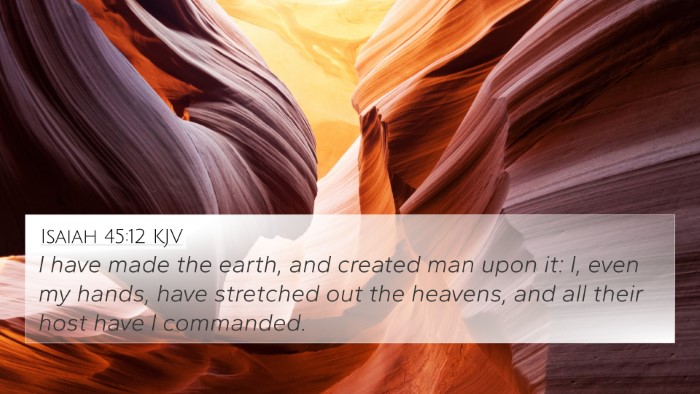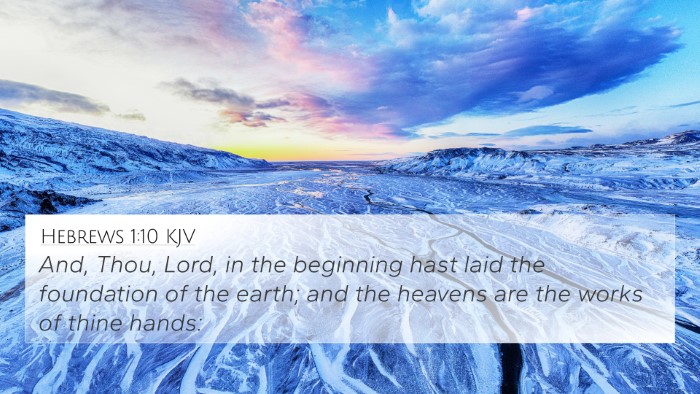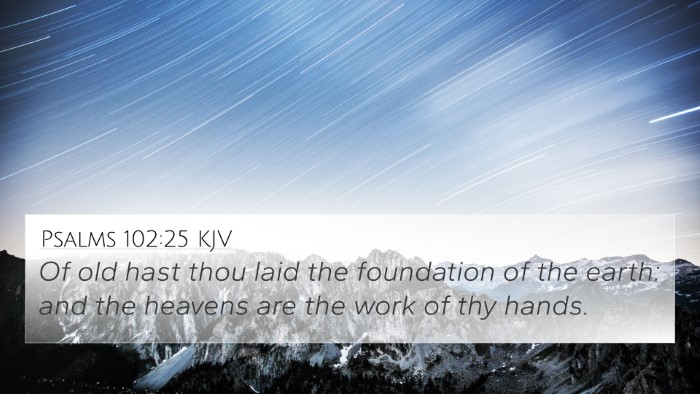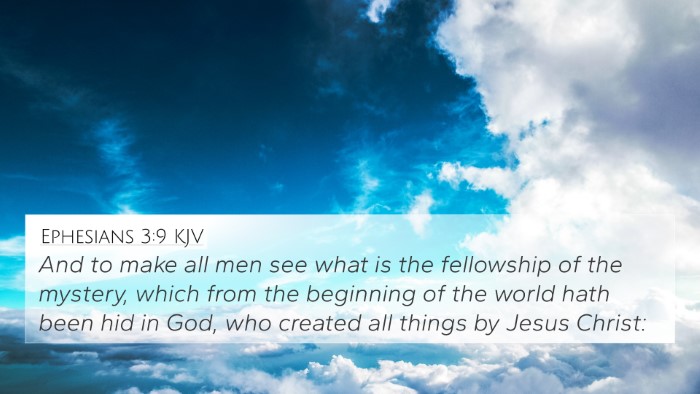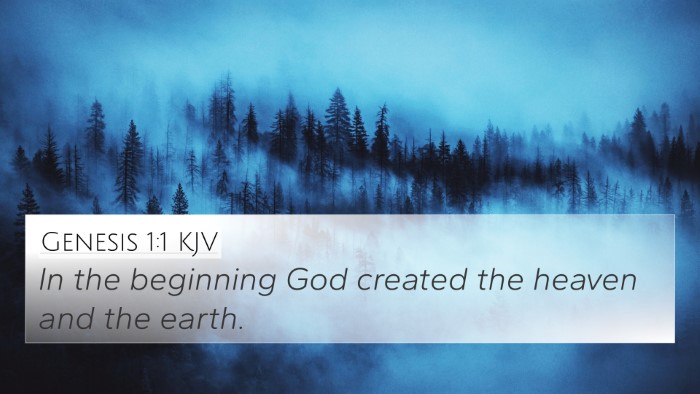Understanding John 1:3
John 1:3 states, "All things were made through him, and without him was not any thing made that was made." This verse holds crucial theological significance in the Christian faith, encapsulating the creative power and divine nature of Christ. Below, we delve into the interpretations and meanings associated with this verse, combining insights from various public domain commentaries.
Context and Overview
In the prologue of the Gospel of John, the author presents profound truths about the Word (Logos) and sets a foundation for understanding Christ’s divine nature. By affirming that all things were made through Him, the verse emphasizes the integral role of Jesus in creation and the unity of His essence with God.
Theological Significance
The Gospel of John uniquely portrays Jesus not just as a historical figure but as the preexistent Word of God. Matthew Henry, Albert Barnes, and Adam Clarke offer insights on this profound identity:
-
Matthew Henry: He emphasizes the omnipotence of Christ, indicating that the existence of everything hinges on His will. This underscores the theme of divine sovereignty in creation.
-
Albert Barnes: Barnes notes that “through him” indicates the active role of Jesus in creation, highlighting the philosophical premise that all material and immaterial realities emanate from Him.
-
Adam Clarke: Clarke elaborates on the completeness of creation through Christ, arguing that nothing exists that did not originate from His creative agency, signifying His essential divinity.
Connections Between Bible Verses
John 1:3 establishes critical connections with other Bible verses that reflect the creative work of God through Christ and elaborate on His nature:
- Genesis 1:1: "In the beginning, God created the heavens and the earth." This verse corresponds to John 1:3 by affirming that God, through Christ, is the ultimate Creator.
- Colossians 1:16: "For by him all things were created, in heaven and on earth, visible and invisible." This parallels the assertion in John 1:3 regarding Christ's role in creation.
- Hebrews 1:2: "But in these last days he has spoken to us by his Son, whom he appointed the heir of all things, through whom also he created the world." This further validates the theme of Christ as the divine agent in creation.
- Revelation 4:11: "Worthy are you, our Lord and God, to receive glory and honor and power, for you created all things, and by your will they existed and were created." This verse illustrates the glory attributed to God as Creator.
- 1 Corinthians 8:6: "Yet for us there is one God, the Father, from whom are all things and for whom we exist, and one Lord, Jesus Christ, through whom are all things and through whom we exist." Here, the unity of the Father and the Son in the act of creation is emphasized.
- John 1:10: "He was in the world, and the world was made through him, yet the world did not know him." This verse reiterates the significance of Christ in creation while highlighting the world’s failure to recognize Him.
- Acts 17:24: "The God who made the world and everything in it, being Lord of heaven and earth, does not live in temples made by man." This reference supports the assertion of God’s active role in creation through His Son.
Comparative Bible Verse Analysis
A comparative study of these verses reveals a consistent theme of Christ’s divinity and His creative authority. The notion that "without him was not any thing made" forms a fundamental basis for understanding the relationship between Christ and creation—a notion that resonates throughout both the Old and New Testaments.
Inter-Biblical Dialogue
This dialogue between biblical texts enhances our comprehension of Christ's nature. By cross-referencing key scriptures, we can establish a thematic connection indicating that creation is both an act of God’s will and a revelation of His Son.
Tools for Bible Cross-Referencing
For deeper study, it is advisable to use various tools and resources for Bible cross-referencing. Here are some effective ways to explore the connections between verses:
- Bible Concordance: A detailed index of terms used in the Bible that can guide you to related verses.
- Bible Cross-Reference Guide: A resource that systematically links verses based on themes or concepts.
- Cross-Reference Bible Study Methods: Various methodologies that allow the reader to compare and contrast similar biblical texts.
- Bible Reference Resources: Comprehensive materials that can aid in understanding scriptural connections.
- Bible Chain References: A technique to follow a theme or idea through connected verses across the scripture.
How to Use Bible Cross-References
To efficiently locate cross-references:
- Utilize a Bible concordance to track keywords.
- Look for themes that connect verses across the Old and New Testament.
- Engage in comparative studies to unveil deeper insights and thematic parallels.
- Utilize commentaries and reference guides to explore the contexts of related verses.
- Participate in group studies, discussing the connections made through identified cross-references.
Conclusion
John 1:3 stands as a pivotal scripture that not only asserts the creative authority of Christ but also invites us to explore the extensive interconnections within the Bible. By utilizing cross-referencing tools and maintaining an awareness of thematic and scriptural dialogue, believers can gain a profound understanding of their faith and the integral role Jesus plays in both creation and redemption.



